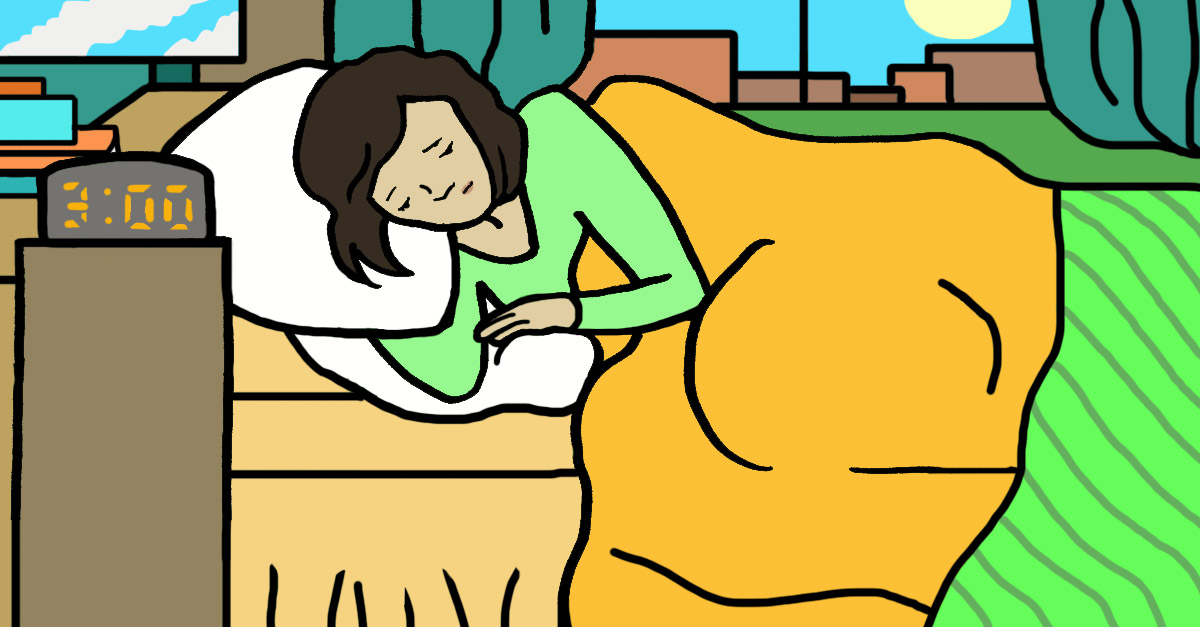

This is where your brain starts creating delta waves. Your brain waves have a new pattern during N2 as well-one that actually helps it resist being woken up by external noises or stimuli. So what happens during N2? You begin to really relax: your body temperature drops, your muscles relax, breathing and heart rate slows down and eye movement stops.

So much so that you’ll spend about half your total sleep cycle in N2 sleep every night. This phase lasts for 10-25 minutes, and can get longer as your sleep cycle repeats itself during the night. If this happens often, try limiting caffeine in the hours before bed and relaxing a little bit: stress has been linked to hypnic jerks. The muscles relax, your mind freaks out, and you jolt awake.

It’s very common and while there’s no set theory for what causes this phenomenon, it’s generally agreed that what you’re experiencing is your body muscles relaxing at once in preparation for sleep, but your brain isn’t all the way unconscious yet. Have you ever felt like you were falling right before you fell asleep? That’s called a hypnic or hypnogogic jerk-and relax, its nothing to worry about. Here’s how that cycle works, and how it’s possible to skip the stage we all need the most. That’s why not getting enough REM can have a long-term impact on your brain health.īut you were in bed all night-how could you have not experienced enough REM? You don’t get to the rapid eye movement phase until you’re in the fourth stage of sleep, in a 4-stage sleep cycle that repeats itself several times during a typical 8 hours of sleeping. What we do know: REM sleep is essential to the cognitive processes of learning and memory, and is thought to be when your brain collates data and turns short term memories into long term ones. The exact function of REM sleep is still a mystery, albeit a well-studied one. (Think about all of that blinking you do in a typical day!) Your heart rate is higher during REM sleep than the rest of the night-perhaps it’s those exciting (or scary) dreams. It’s also called “paradoxical sleep,” because your body’s motor functions, brain activity and yes, eye movements, are very similar to what they are when you’re awake. Indeed, insomnia is considered by many sleep studies to be the key risk factor that determines whether a person suffering with post-traumatic stress disorder or major depression will experience suicidal thoughts.REM stands for “rapid eye movement,” and it’s the phase of sleep when we dream. It is unsurprising, therefore, that Denise Pope reports that insomnia in adolescents increases risk-taking behaviour and impulsivity – this would include the impulse to act on suicidal thoughts. Clinical research shows that depriving someone of REM sleep leaves the amygdala 60% more reactive to emotionally charged events. However, if insomnia and nightmares prevent REM sleep from doing the job of reducing cortisol stress hormones and calming emotions from the previous day, the brain’s security officer, the amygdala, is left in a heightened state of arousal. If intense dreaming continues throughout the night, the person wakes up feeling exhausted and lacking in motivation, which researchers – and those who have experienced it – know to be the sleep pattern that characterises depression. It has long been known that worrying and stress increase the intensity of REM sleep, when most dreaming occurs, causing it to start earlier on in the night and reducing the deep sleep needed to repair the brain and body. Regarding your article “ Is sleep a ‘magic pill’ for teen wellness in a mental health crisis?” (8 June), sleep research tells us that good sleep isn’t just about getting enough – the right quality of sleep is key.


 0 kommentar(er)
0 kommentar(er)
